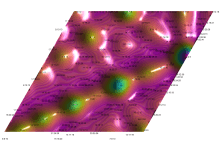Musical argument
A musical argument is a means of creating tension through the relation of expressive content and musical form:
Traditional dialectal[lower-alpha 1]music is representational: the musical form relates to an expressive content and is a means of creating a growing tension; this is what is usually called the musical argument.
Experimental musics may use process or indeterminacy rather than argument.[2]
The musical argument may be characterized as the primary flow and current idea being presented in a piece:
The very definition of musical argument is something that keeps going, and you uncover new details and new combinations. A musical argument is not the same as a verbal argument. A verbal argument implies that there's two sides; a musical argument makes the two sides one thing, like counterpoint. A fugue is like that; a double fugue, at least, takes two different ideas and shows you how they relate, and it shows you how they're the same thing.
Thus one may hear of a musical argument being interrupted, extended, or repeated.
See also
Notes
- ↑ The purpose of the dialectic method of reasoning is resolution of disagreement through rational discussion between opposing viewpoints.
Sources
- ↑ Mertens, Wim (1999). American Minimal Music: La Monte Young, Terry Riley, Steve Reich, Philip Glass, reprinted edition (London: Kahn & Averill), p.88. ISBN 1871082005. Quoted in LaBelle, Brandon (2006). Background Noise (London and New York: Continuum), p.7. ISBN 9780826418449.
- ↑ LaBelle (2006), p.7.
- ↑ Gans, David (2002). Conversations With The Dead, p.166. ISBN 9780306810992.
This article is issued from Wikipedia - version of the 12/30/2014. The text is available under the Creative Commons Attribution/Share Alike but additional terms may apply for the media files.
